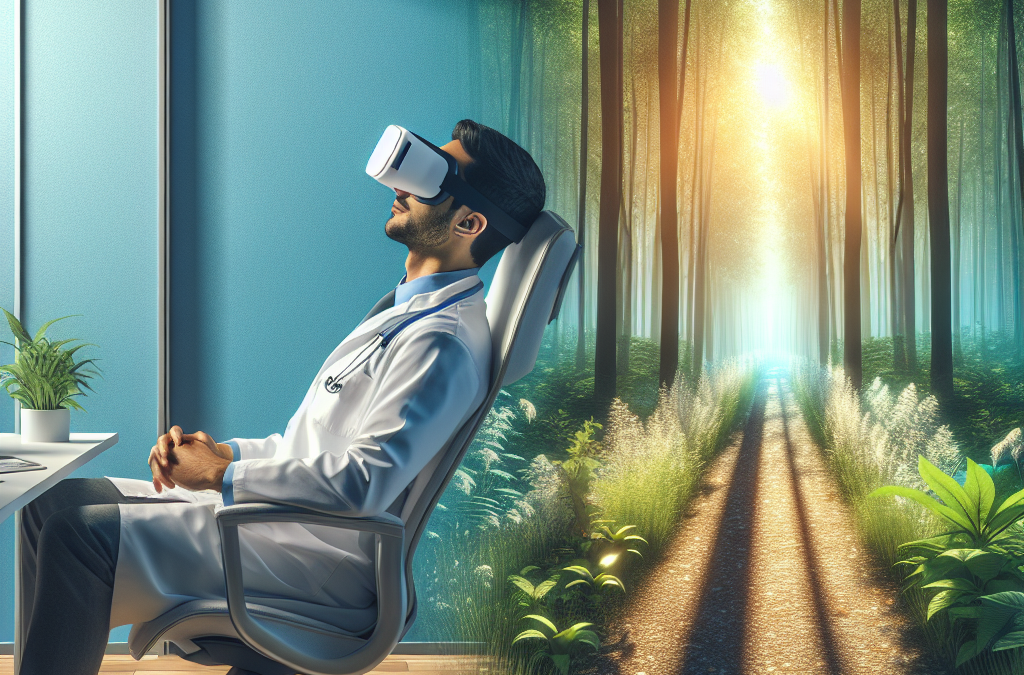Relaxation Technology for Doctors: Managing Work Stress
In the fast-paced world of healthcare, doctors often find themselves stretched to the limits. With long hours, critical decisions, and emotional challenges, the stress can become overwhelming. Fortunately, technology offers innovative solutions to help medical professionals manage stress effectively. In this blog post, we explore various relaxation technologies that are making a difference in the lives of doctors. ??
Understanding Work Stress in Healthcare
Work stress is a significant concern in the medical field. The constant pressure to perform, coupled with the emotional toll of patient care, can lead to burnout. It’s crucial to address these stressors to maintain a healthy work-life balance.
How Technology is Revolutionizing Stress Management
The advent of technology has introduced new ways to cope with stress. From wearable devices to mobile apps, these tools offer real-time stress management solutions. Let’s delve into some of the most effective technologies available today.
Wearable Devices: Monitoring and Managing Stress
Wearable devices have become a popular choice for stress management. They monitor physiological indicators like heart rate and skin conductance to provide insights into stress levels. For example, devices such as the Apple Watch and Fitbit offer features that track your heart rate variability, a key metric for stress.
Mobile Apps: Mindfulness and Relaxation at Your Fingertips
Mobile apps have made relaxation techniques more accessible than ever. Apps like Headspace and Calm offer guided meditation sessions, breathing exercises, and sleep stories. These tools are perfect for busy doctors who need quick, effective stress relief during breaks.
Virtual Reality: Immersive Relaxation Experiences
Virtual reality (VR) is emerging as a powerful tool for stress management. VR offers immersive experiences that can transport users to serene environments, fostering relaxation and reducing stress. For instance, apps like Nature Treks VR allow users to explore calming landscapes, providing a temporary escape from the hustle and bustle of hospital life.
Teletherapy: Professional Support from Anywhere
Teletherapy has gained traction as a convenient way for doctors to access mental health support. Platforms like BetterHelp and Talkspace connect users with licensed therapists through video calls, making it easier for medical professionals to seek help without the added stress of commuting to appointments.
Biofeedback: Understanding Your Body’s Stress Signals
Biofeedback technology allows doctors to understand their body’s stress signals better. Devices such as Muse headbands provide real-time feedback on brain activity, helping users learn how to control stress responses through mindfulness and relaxation techniques.
Smart Lighting: Creating a Calming Environment
Smart lighting systems, like Philips Hue, can create environments that promote relaxation and focus. By adjusting the color and intensity of lighting, doctors can create a calming ambiance that helps reduce stress and improve mood.
The Future of Relaxation Technology in Healthcare
The future of relaxation technology looks promising, with advancements in AI and machine learning paving the way for personalized stress management solutions. As these technologies continue to evolve, they hold the potential to transform how doctors manage stress in their professional lives.
Conclusion: Embracing Technology for a Healthier Work-Life Balance
As the demands on healthcare professionals continue to grow, incorporating relaxation technology into daily routines is becoming essential. By leveraging these tools, doctors can manage stress more effectively, leading to improved well-being and better patient care. Remember, taking time to relax is not a luxury—it’s a necessity. ?????
FAQs
Q: Can relaxation technology replace traditional stress management techniques?
A: While technology offers innovative solutions, it should complement, not replace, traditional stress management techniques like exercise, healthy eating, and social support.
Q: Are there any risks associated with using relaxation technology?
A: Most relaxation technologies are safe, but it’s important to use them as directed. Over-reliance on technology without addressing underlying stressors may not be effective.
Q: How can I choose the right relaxation technology for me?
A: Consider your needs and preferences. Try different technologies and see what works best for your lifestyle and stress levels.
By incorporating these technologies into their routines, doctors can take proactive steps towards managing stress, ultimately leading to a healthier and more fulfilling career. ?
Roshiwave Meditation Mind Machine
Add CTA sections description.


